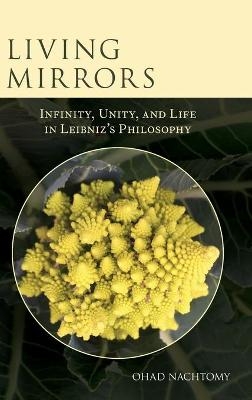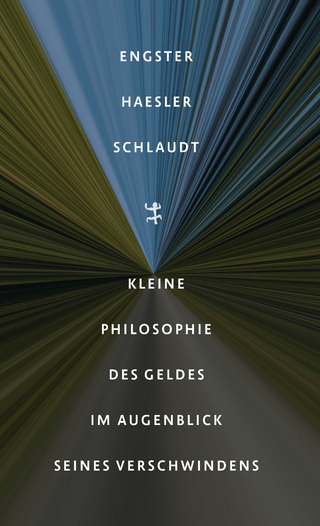
Living Mirrors
Infinity, Unity, and Life in Leibniz's Philosophy
Seiten
2019
Oxford University Press Inc (Verlag)
978-0-19-090732-7 (ISBN)
Oxford University Press Inc (Verlag)
978-0-19-090732-7 (ISBN)
This work presents Leibniz's view of infinity and the central role it plays in his theory of living beings. Nachtomy argues that Leibniz employs three degrees of infinity: absolute infinity, which applies to God; maximum or infinite in kind, which applies to created, living beings; and mathematical infinity.
In Living Mirrors, Ohad Nachtomy examines Leibniz's attempt to "re-enchant" the natural world-that is, to infuse life, purpose, and value into the very foundations of nature, a nature that Leibniz saw as disenchanted by Descartes' and Spinoza's more naturalistic and mechanistic theories. Nachtomy sees Leibniz's nuanced view of infinity- how it differs in the divine as well as human spheres, and its relationship to numerical and metaphysical unity-as key in this effort. Leibniz defined living beings by means of an infinite nested structure particular to what he called "natural machines"-and for him, an intermediate kind of infinity is the defining feature of living beings. Using a metaphor of a "living mirror," Leibniz put forth infinity as crucial to explaining the unity of a living being as well as the harmony between the infinitely small and the infinitely large; in this way, employing infinity and unity, we can better understand life itself, both as a metaphysical principle and as an empirical fact. Nachtomy's sophisticated and novel treatment of the essential themes in Leibniz's work will not only interest Leibniz scholars, but scholars of early modern philosophy and students of the history of philosophy and science as well.
In Living Mirrors, Ohad Nachtomy examines Leibniz's attempt to "re-enchant" the natural world-that is, to infuse life, purpose, and value into the very foundations of nature, a nature that Leibniz saw as disenchanted by Descartes' and Spinoza's more naturalistic and mechanistic theories. Nachtomy sees Leibniz's nuanced view of infinity- how it differs in the divine as well as human spheres, and its relationship to numerical and metaphysical unity-as key in this effort. Leibniz defined living beings by means of an infinite nested structure particular to what he called "natural machines"-and for him, an intermediate kind of infinity is the defining feature of living beings. Using a metaphor of a "living mirror," Leibniz put forth infinity as crucial to explaining the unity of a living being as well as the harmony between the infinitely small and the infinitely large; in this way, employing infinity and unity, we can better understand life itself, both as a metaphysical principle and as an empirical fact. Nachtomy's sophisticated and novel treatment of the essential themes in Leibniz's work will not only interest Leibniz scholars, but scholars of early modern philosophy and students of the history of philosophy and science as well.
Ohad Nachtomy is Professor of Philosophy at Bar-Ilan University and a visiting member of the Institute of Advanced Study at Princeton University. His recent books are The Life Sciences in Early Modern Philosophy (OUP 2014) and Machines of Nature and Corporeal Substances in Leibniz (2010), both coedited with Justin E. H. Smith; and Possibility, Agency, and Individuality in Leibniz's Metaphysics (2007).
| Erscheinungsdatum | 08.05.2019 |
|---|---|
| Verlagsort | New York |
| Sprache | englisch |
| Maße | 236 x 160 mm |
| Gewicht | 454 g |
| Themenwelt | Geisteswissenschaften ► Philosophie ► Metaphysik / Ontologie |
| Geisteswissenschaften ► Religion / Theologie | |
| ISBN-10 | 0-19-090732-0 / 0190907320 |
| ISBN-13 | 978-0-19-090732-7 / 9780190907327 |
| Zustand | Neuware |
| Haben Sie eine Frage zum Produkt? |
Mehr entdecken
aus dem Bereich
aus dem Bereich
Buch | Hardcover (2024)
Matthes & Seitz (Verlag)
28,00 €


